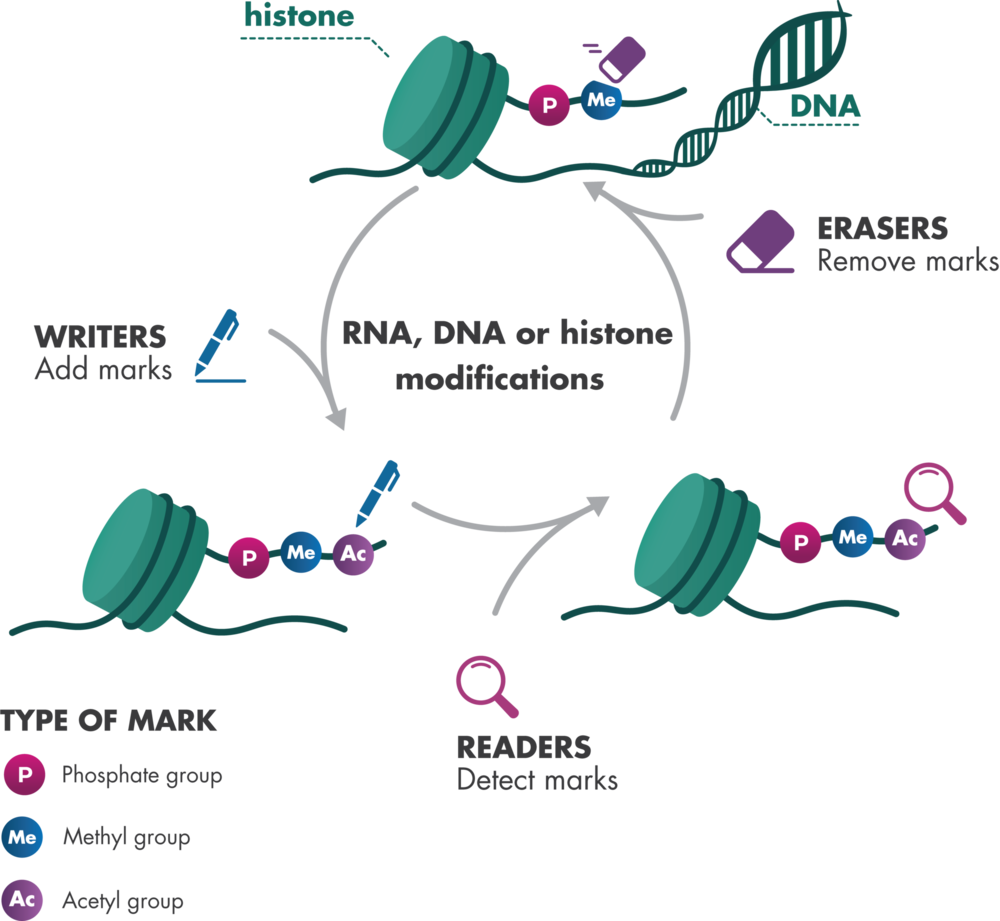Reaction Biology supports the drug discovery community with epigenetic screening services since the first epigenetic inhibitor testing was required in the early 2000s. Ever since the very beginnings of epigenetic drug discovery, we increased our portfolio and still provide the largest coverage for epigenetic assays.
We provide a wide variety of epigenetic assay services for drug discovery. Our epigenetic screening services include bromodomain and other reader domain assays, methyltransferase assays, demethylase assays, and more. Get in contact with our scientists to talk about your next epigenetic drug discovery project today.
Epigenetic enzymes control the mechanics of genetic expression, acting as “on” and “off” switches for the human genome. Malfunctions of these enzymes are implicated in many immunological and neurodegenerative conditions as well as cancer. We are dedicated to providing end-to-end service for epigenetic drug discovery covering all steps of the preclinical drug discovery process.
Cell-based assays are valuable tools for evaluating inhibitor potency to affect acetylation or methylation changes of substrates in a physiological environment using intact cells.
Reaction Biology offers biochemical and biophysical assays to study epigenetic reader domains. More than 100 assays are available for screening, lead optimization, or selectivity profiling for reader domain inhibitors.
Reaction Biology offers the largest collection of methyltransferase assays in the industry comprising over 30 assays for compound screening and profiling.
Reaction Biology offers assays for both Jumonji C-domain containing (JmjCs) and lysine-specific demethylases (LSD) histone demethylase subfamilies.
Reaction Biology offers radiometric activity assays for HAT enzymes using tritiated acetyl-Coenzyme A as a cofactor.
Reaction Biology offers fluorescence-based assays for both Zn2+-dependent HDACs and NAD+-dependent sirtuins.
Reaction Biology provides compound screening against IDH by measuring enzyme activity in a coupled system wherein NADPH produced in the initial reaction is a co-factor in the conversion of resazurin to fluorescent resorufin in a secondary reaction.
Custom-tailored epigenetic screening and mechanism of action studies can be performed with either our portfolio of assays or with an epigenetic protein or substrate provided by the customers.

